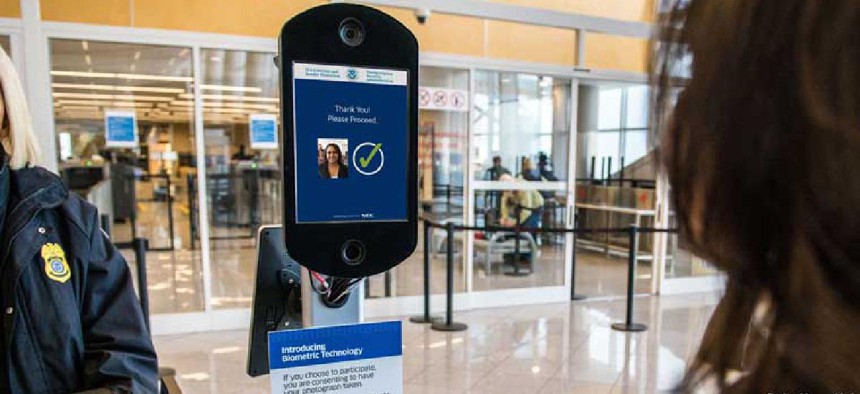TSA, Delta test biometric check-in for domestic flights

The Transportation Security Administration is working with Delta Airlines and the Detroit Metropolitan Wayne County Airport to test a touchless system that verifies a domestic passenger’s digital identity with customer’s passport number, TSA PreCheck membership and a live photo.
The Transportation Security Administration is working with Delta Airlines and the Detroit Metropolitan Wayne County Airport to test a biometric system that verifies a domestic passenger’s digital identity at TSA PreCheck’s checkpoints with customer’s passport number, TSA PreCheck membership and a live photo.
The service compares a live image taken at the checkpoint to photos that the passenger previously provided to the government on a passport or visa application. Earlier pilots compared the photos on identity documents passengers were carrying directly against the information provided to TSA.
This pilot will use TSA’s Secure Flight system and Custom and Border Protection’s Traveler Verification Services to compare the live image taken at the checkpoint to pre-staged photos that the passenger previously provided to the government on a passport or visa application.
Only CBP Global Entry passengers and TSA PreCheck passengers who have a U.S. passport can participate in the pilot. During Delta’s mobile app check-in process, eligible passengers will be notified that they can participate. Those that choose to do so will store their passport information and TSA PreCheck Known Traveler Number in their Fly Delta app. They then get a consent indicator on their boarding pass, and TSA will upload their previously provided photos to the system. At the airport, passengers look into the camera stationed at the bag drop, the security checkpoint and the boarding gate instead of showing a physical ID and boarding pass.
Those live images are encrypted, stripped of biographic information and sent to CBP facial biometric matching service via a secure channel, Delta said in its announcement. CBP then verifies a passenger’s identity against the CBP image gallery and sends back an indicator to allow the customer to proceed.
During the pilot, TSA said it will collect limited information from the consenting passenger’s identity document, according to the Privacy Impact Assessment. TSA will anonymize the data, encrypt it and transfer it for temporary analysis to the Department of Homeland Security Science & Technology Directorate, which will assess the effectiveness of this biometric technology pilot. The data will be deleted within 180 days, TSA said.
“The COVID-19 pandemic has only deepened the importance of providing a touchless experience for our customers,” said Bill Lentsch, Delta’s chief customer experience officer. “We plan to expand curb-to-gate facial recognition and digital ID beyond the Detroit test so that all of our customers can enjoy a seamless, touchless travel experience across our network.”
NEXT STORY: Utah shares hard lessons on privacy, bias





